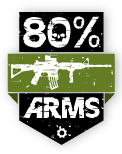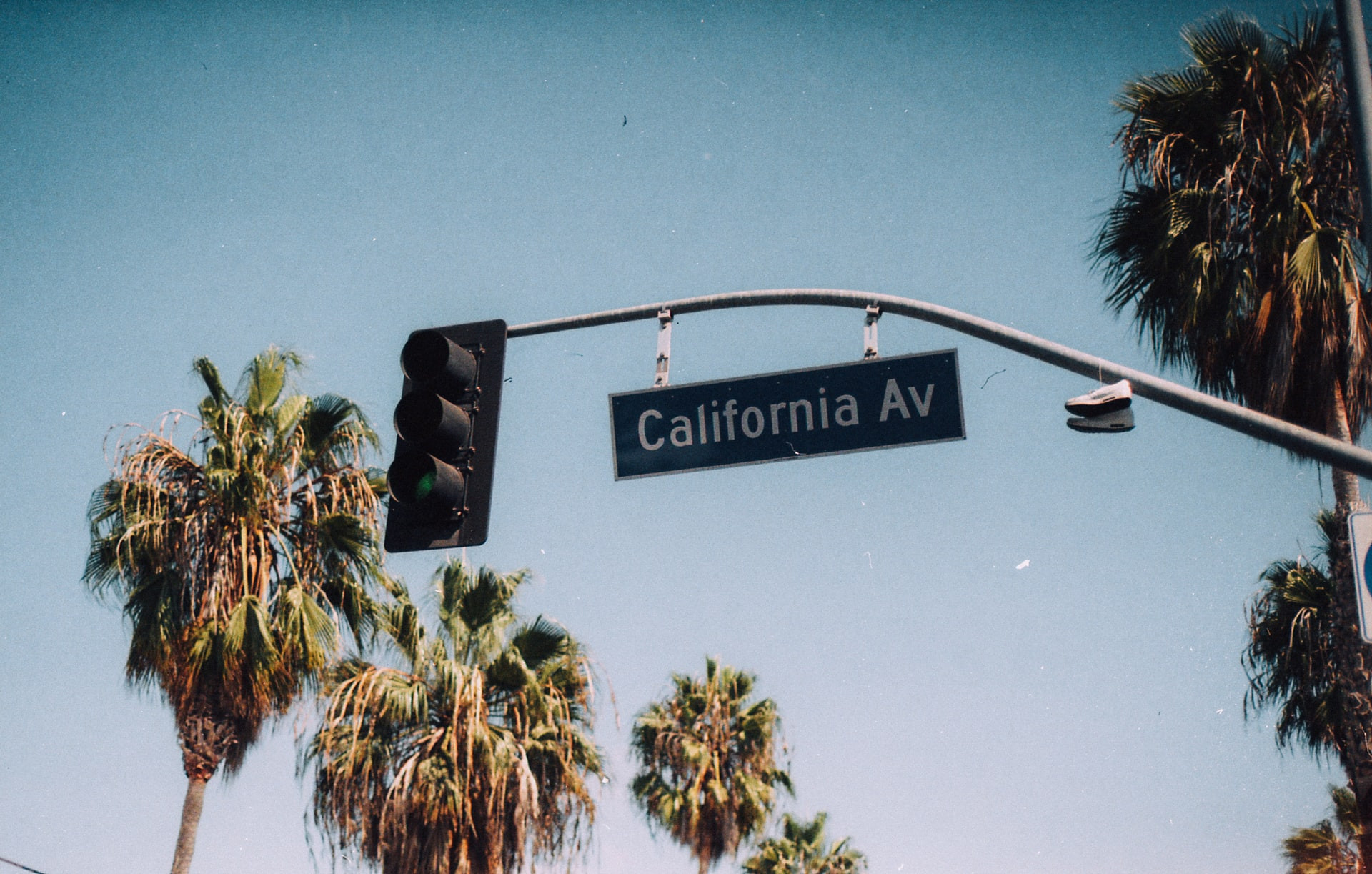California 80 Percent Lower Laws
BEGINNING IN SUMMER OF 2022, CALIFORNIA BANNED THE SALE OF 80 LOWERS IN THE STATE. WE ARE NO LONGER SHIPPING THESE PRODUCTS TO CALIFORNIA IN COMPLIANCE WITH ALL STATE LAWS. IT IS NOW ILLEGAL TO PURCHASE, POSSES, TRANSFER, OR COMPLETE AN 80% RECEIVER IN CALIFORNIA. HOWEVER, PURCHASING AN 80% LOWER IS STILL PERFECTLY LEGAL IN MOST STATES. IT'S CRUCIAL TO VERIFY THE SPECIFIC REGULATIONS APPLICABLE IN YOUR LOCAL AND STATE JURISDICTIONS.
Legal Disclaimer: The information in this blog is not legal advice. We are not lawyers. While we endeavor to keep all our blogs updated with the most accurate information, gun laws are ever changing and they can change quickly with little to complex differences in new legislation. Therefore, while we try our best to provide complete information, we acknowledge that everything you’re reading below may change (or already has changed).
Do not rely solely on the information provided by us or on this website for your purchase decisions. To ensure that you, the buyer, are acting in accordance with all federal, state laws and local ordinances, please be sure to do your own research and consult an attorney if necessary.
To see where some or none of our products can be shipped to, please see our full list of sensitive states here.
What is an 80% Lower?
An 80% lower receiver is an unfinished and unserialized blank which requires so machining work from the end user to turn it into a 100% lower receiver, otherwise, what is legally considered as a firearm. 80 lowers are missing the trigger pocket and a three holes that need to be milled and drilled out to be completed. Unless states have passed their own laws barring the possession or sales of 80% products; pending the ATF's updated decision from the most recent proposed rule 2021R-05 80% lowers are completely legal, not considered firearms and thus can be shipped straight to your front door. No FFL required. To explore the 80% lowers we have to offer, check out our multiple collections.
Are 80 Lowers Legal In California?
NO!
As of this guide’s initial publish date, 80% lower receivers and frames are not considered as firearms by the ATF and ARE NOT legal to ship directly to buyers residing in California.
Per
AB 1621, effective July 1, 2022, CA began to legally define 80 lowers as firearms, despite this contradicting ATF federal policies. It's also illegal to purchases, possess, transfer or build out these parts to completion.
Can you ship to my state?
Unfortunately, we cannot ship any 80% Products to residents in the state of California.
Do I Need to Serialize My 80 Lower in California?
Previously, if you built out your own firearms starting with 80 lowers in California you certainly could request an official unique serial number for your self manufactured firearm but this is no longer the case in CA as you can no longer purchase, posses, transfer, or complete 80% lowers in the state.
Key Gun Laws in California
Other than laws regarding 80 lowers, these are the key gun laws you should be aware of if you reside or are traveling through California.
Firearm Possession and Purchase Requirements
In the state of California, several documents are required to purchase a firearm. Regardless of if it is a long gun or handgun, residents will need to take a basic safety knowledge test to obtain a Firearms Safety Card or “FSC.” With this card it acts as a license to purchase firearms. Unfortunately a recent bill changed the law so that now license holders can only buy one new handgun or long gun per 30 days. Although, there are still no limits as to how many handguns you can obtain via private party transfers in a single month. To purchase a long gun you must be at least 18 years of age. To purchase a handgun in California you must be at least 21 years of age. However, there is an exception for persons between the ages of 18 - 21 which allow for purchase of a handgun if they possess an Annual Hunting License from the CA Department of Fish and Wildlife and can present the ID card when at an FFL dealer. The CA Hunting License costs about $52/year.
All firearms sales and transfers between private citizens require a background check (Dealer Record of Sale also known as 4473 form or “DROS”). During the DROS process, buyers will be required to present their FSC, driver’s license and proof of their state residency via two selected documents such as car registration, a utility bill, residential lease, property deed, or government-issued identification (other than a driver license such as a passport card). Some stores are lenient and will allow buyers to complete the DROS initially without all the documents as long as they are provided when picking up the firearm at the end of the 10-day waiting period. Unfortunately, California does not allow firearm buyers to take their products home the same day they purchase it.
While federal law requires federal firearm license holders (“FFL’s”:) to initiate background checks on buyers prior to the sale of a firearm, federal law also allows states to serve as their own “point of contact” and conduct their own background checks via state, federal records or databases, as well as the option to use the FBI’s National Instant Criminal Background Check System (“NICS”) database. California is a point of contact for the NICS and does have laws requiring firearms dealers to initiate the background check prior to transferring a firearm.
Open and Concealed Carrying
California generally does not allow residents to openly carry firearms unless they are peace officers, military personnel, licensed hunters, or residents in counties with a population less than 200,000 people. Though it will differ greatly for residents depending on the county they reside in, concealed carry weapon permits or “CCW’s” are more than possible to obtain. CCW restrictions will differ per county as some counties will be “shall issue” and others will be “may issue.” To see what your county’s stance is on concealed carry permits check this ccw county map here.
NFA Restrictions
No NFA weapons or related items are allowed for the average civilian and there is currently an “ assault weapons” ban in place. Not sure if your firearm is considered an assault weapon in California? See this assault gun flowchart here.
Magazine Capacity Restrictions
There are magazine capacity restrictions of 10 rounds for both long guns and handguns. If you’d like to stay within the confines of the law, we carry low capacity magazines like the ETS 10 rounder mags in G17 and G19 length. Or if you need mags for your AR-15 we also carry 10 round Hex magazines for 5.56.
Mandatory Storage Requirements
There are “safe storage” and mandatory firearm storage requirements in California. Legally, you are required to own a safe if you are purchasing firearms, though there’s no real way that it’s enforced buyers are often asked in stores whether they have one or not. If you need some ideas, here are 5 ways to store your firearms at home.
Self-Defense
California does have a Castle Doctrine law in place however it does not have a “Stand Your Ground” law in place; although CA appellate courts have held that there is no duty to retreat before using force in public there is often the concern of responding with “reasonable amount of force.”
Ammunition Purchase
In order to purchase any ammunition in California a background check, the same process as the DROS, is required which means buyers will be asked to present their driver licenses when purchasing in stores. (There is no waiting period for ammo purchases) Ammo buyers must not only be at least 18 years of age for long guns, 21 years of age for handguns, but also must have recently purchased a firearm in order to signify that they’ve recently passed a background check within the past five years or some FFL’s may simply ask buyers to provide a FSC for proof. Ammo purchase records are kept by FFL’s for up to five years.
California does not allow the sale of armor-piercing rounds or other “unreasonably dangerous ammunition” designed to penetrate armor or metal. It is a felony to sell or give ammunition to a minor without parental consent. Online purchase of ammo is still legal however it must be shipped to an FFL which involves not only the background check fee of $1 but also extra transfer fees of around $15.



 Back to List
Back to List